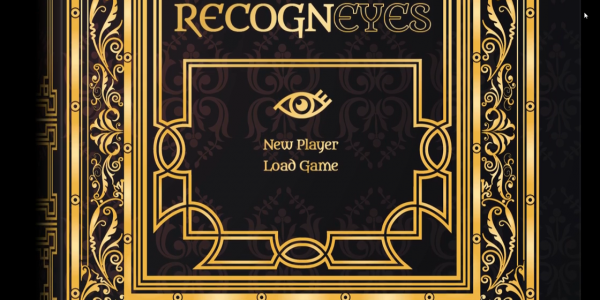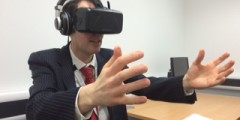Video overview of the RECOGNeyes Game
July 21, 2017
RECOGNeyes is a computer game that you play using your eyes as the game controller. It has been developed at the University of Nottingham in collaboration with people with ADHD. The game is designed to train people to have better control over their attention. As you advance in the game, you learn to control different …
RECOGNeyes: Feedback from the Patient Public Involvement (PPI) meeting
July 18, 2017
We organised a PPI group with four members. The goal was to discuss our research plans. By involving patients and members of the public we had the opportunity to get a common sense opinion of what we’re doing from the perspective of those with lived experience. The panel had an opportunity to get to know one another a little …
Providing Schools with RECOGNeyes
June 30, 2017
Changes were made to the RECOGNeyes attention training game based on feedback from a local ADHD support group. We then arranged to provide five local schools with the RECOGNeyes game along with laptops and eye-trackers. These schools are currently providing access for their pupils to RECOGNeyes. Teachers have been very enthusiastic about using RECOGNeye. They …
RECOGNeyes: Feedback and data from the Adult ADHD Support Group
June 22, 2017
Following on from earlier input we were eager to continue to include individuals with ADHD in the collaborative development of the game. Individuals with ADHD have lived experience of the condition and their input is therefore of critical importance for its success as an effective intervention. An overview of the RECOGNeyes game was presented to …
Introducing the “in my shoes” campaign at the annual CANDAL conference
March 8, 2016
The annual conference for the Centre for ADHD and Neurodevelopmental Disorders across the Lifespan was held Friday 5th of February 2016 at the Institute of Mental Health, University of Nottingham. The theme of this year’s conference was enhancing understand of ADHD. Due to the kind support of Shire the audience were introduced to their ‘in …
How useful is Methylphenidate for treating attention deficit hyperactivity disorder (ADHD) in children and adolescents?
December 10, 2015
Attention deficit hyperactivity disorder (ADHD) is one of the most commonly diagnosed and treated psychiatric disorders in children and adolescents. Young people with ADHD find it hard to sit still and concentrate and often do things without thinking them through; this can make it harder for them to do well at school and get on …
Award-winning book ‘Neurotribes’ examines the history and myths of autism
December 1, 2015
A few weeks ago, Steve Silberman’s Neurotribes became the first science book to win the prestigious Samuel Johnson prize. In his book, Silberman discusses the change in people’s attitudes towards autism over the years and urges us to refrain from making categorical assumptions about what distinguishes ‘normal’ from ‘abnormal’ behaviour. It is also refreshing to see …
BBC commissions new series on unemployment and people with neurological conditions
August 3, 2015
Job opportunities and the employment prospects of young people with neurodevelopmental disorders are poorer than for their peers. This is the conclusion one is led to after reviewing research findings from both the UK and USA. For example Roux and colleagues (see study details below) found only just over half of young adults with an autistic …
Harnessing technology in youth mental health
May 27, 2015
With the advent of technology, mobile phone applications (apps) have become an essential part of the everyday lives of most young people and offer exciting opportunities to support their mental health needs. A recent scoping review exploring the use of technology to deliver mental health services found that not only were they enthusiastically supported by …
Tourette’s Syndrome and the likelihood of experiencing other psychiatric disorders
March 16, 2015
Young people with Tourette’s Syndrome (TS) their parents and clinicians are all aware of how often TS is accompanied by other disorders such as Attention Deficit Hyperactivity Disorder (ADHD) and Obsessive-Compulsive Disorder (OCD). Until recently evidence to support this idea has come mainly from small studies and anecdotal evidence. A recently published study (February 2015: …











Recent Comments